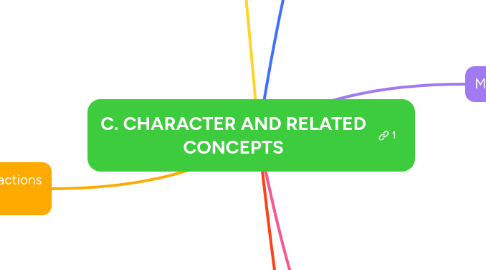
1. Prior Sexual Misconduct
1.1. Where a criminal defendant is accused of sexual assault, evidence of his prior sexual assaults is admissible wherever relevant.
2. Other Crimes, Acts, Transactions and Events
2.1. Admissible on Issue Other than Character.
2.1.1. Proof that a criminal defendant has committed other crimes, whether or not he has been convicted of them, is admissible if offered for some reason other than to show the character of the defendant. Such evidence is admissible to prove motive, opportunity, intent, preparation, plan, knowledge, identity, or absence of mistake or accident
2.1.1.1. such evidence should be excluded if clearly more prejudicial than probative.
2.1.2. Examples of the specific exceptions to the general rule that prior crimes committed by the accused are inadmissible
2.1.2.1. If the accused takes the witness stand, evidence of prior convictions (to the extent permitted by Federal Rule 609) is admissible to impeach his credibility.
2.1.2.2. for the defense of entrapment, his propensity to commit the crime without assistance from the police is in issue. Evidence of his committing the same offense on previous occasions is therefore admissible.
2.1.2.3. if the identity of the person who committed the crime is a principal issue, the fact that the accused committed similar crimes by some peculiar method can be shown.
2.1.2.4. When the defendant admits the act which constitutes the crime, but denies having the required mental state, evidence that he perpetrated the same act previously is admissible to show the required mental state.
2.1.2.5. One crime may furnish the motive for another
2.2. Conviction of Prior Crime Not Generally Required.
2.3. Similar happenings and transactions
2.3.1. The mere fact that a plaintiff is a chronic litigant is not admissible
2.3.2. If property is fungible, such as stock of the same class in the same corporation or bushels of wheat, evidence of sales of similar property is the best evidence of value and is regularly admitted
2.3.3. **Fraud.** Where the plaintiff is attempting to prove fraud or misrepresentation in a civil case, evidence of similar fraudulent acts is admissible to show intent to defraud and to show knowledge that the representations were false.
2.3.4. **Contract Dealings.** Evidence of a course of dealings between the parties to a contract are admissible in a dispute over the meaning of the words in the contract.
2.3.5. Accidents and Defective Goods. Evidence of similar accidents, particularly automobile accidents, is not admissible.
2.3.6. evidence of lack of similar accidents is admissible in the landowner or defective product situation where, if the plaintiff's allegations are to be believed, other people would have had to be injured also.
2.3.7. Evidence of Company Rules or Custom in an Industry.
2.3.7.1. Proof of a company safety rule and its violation by an employee is admissible as evidence of negligence. Proof of an industry- wide standard or custom is admissible on the issue of the appropriate standard of care, but is not conclusive on that issue.
3. Admissibility
3.1. Character in Issue.
3.1.1. can ordinarily be proved by specific instances of conduct.
3.2. Character Not Directly in Issue.
3.2.1. Prosecution may not introduce bad character.
3.2.2. Defendant can introduce good character and Prosecution may rebut.
3.2.2.1. Once he does so, he opens the door and the prosecution may then prove bad character.
3.2.3. No character evidence in civil cases.
3.2.4. Defendant may introduce victim's character and Prosecution may rebut.
3.2.5. Prosecution can show peacefulness of homicide victim if self-defense is in issue.
3.2.6. Character of witness for truthfulness may be impeached.
